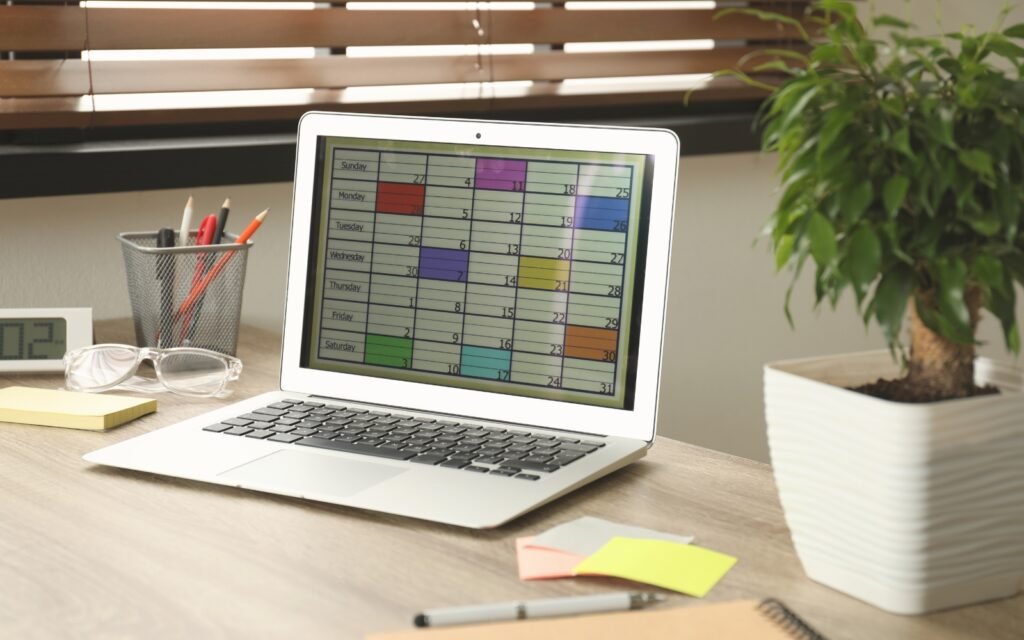Effective Time Management for Parents 2025: A Complete Guide

Parenting is a full-time job, often paired with work, household duties, and other responsibilities. It’s no wonder many parents feel overwhelmed trying to juggle everything! In this guide, we’ll explore effective time management for parents, offering time management tips for busy parents to help you find balance, stay organized, and even reclaim some personal time. Whether you’re struggling with tasks at work, at home, or with your kids, these strategies can help you feel more in control.
Key Takeaways – Effective Time Management for Parents
- Discover how to manage your time effectively with actionable steps.
- Learn to prioritize what truly matters, like spending time with your kids and family bonding.
- Find tools, routines, and strategies that busy parents can apply to reduce stress.
- Understand how to divide responsibilities, use technology, and set a schedule to stay organized.
Why Time Management Matters for Parents

Life as a parent is incredibly rewarding, but let’s face it—it’s also demanding. With so much to juggle, good time management is essential.
- It reduces stress. Having a plan can make even chaotic days manageable.
- It increases productivity. Completing tasks efficiently frees up time for family moments.
- It enhances family bonds. With better planning, you can spend quality time with your kids.
1. Prioritize What Really Matters

Many parents fall into the trap of trying to do it all. But not everything needs to be done at once.
- Focus on key tasks. Start your day by identifying 3–5 things that absolutely need to be done.
- Break tasks into smaller steps. Large tasks can feel overwhelming. Breaking them into smaller, manageable steps helps.
- Say no when needed. Declining commitments that don’t align with your priorities is okay—even if it means missing social activities.
Example:
Instead of cleaning the entire house in one day, focus on one room or area. This makes it easier to stay productive without burning out.
2. Create Daily and Weekly Schedules

A good schedule keeps you on track and ensures you’re prioritizing what matters most.
- Daily plans. Map out your day each morning or the night before. Use a to-do list to stay focused.
- Weekly planning. Dedicate time each weekend to organize meals, activities, and appointments for the upcoming week.
- Block time for family. Set specific times to bond with your kids and limit distractions like email or social media during these moments.
Pro Tip:
Use apps like Google Calendar to coordinate schedules with your partner or kids. Shared calendars make it easier to keep everyone organized.
3. Involve Your Kids in Tasks

Spending time with your kids doesn’t mean you have to sacrifice productivity. By involving them in chores or activities, you create opportunities to bond while teaching life skills.
- Age-appropriate chores. Younger kids can put away toys or set the table. Older kids can help with cleaning or organizing.
- Make it fun. Turn tasks into games to keep kids engaged.
- Teach responsibility. Assigning regular tasks helps your kids grow into responsible individuals.
Bonus Tip:
Pair household tasks with quality time—like chatting while cooking dinner or folding laundry together.
To further develop responsibility, consider Building Resilience in Young Children through structured tasks and encouraging independence.
4. Use Technology to Stay Organized

Technology offers great tools to make time management easier.
- Digital calendars. Apps like Google Calendar help you plan and set reminders.
- Task management tools. Use apps like Todoist or Trello to keep track of everything that needs to be done.
- Meal planning apps. Tools like Mealime can save time and reduce stress at the end of the day.
Why This Matters:
By using the right tools, you can save much time and stay focused on important things instead of feeling overwhelmed.
5. Practice Time Blocking

Time blocking is a simple yet powerful strategy to reclaim control of your day.
- Plan your blocks. Assign specific time slots for work, family, and personal time.
- Batch similar activities. Group tasks like phone calls or emails to stay productive.
- Stick to your blocks. Avoid interruptions during your dedicated time slots.
Example:
Reserve 6–8 PM for family dinner and activities. During this block, turn off your phone and fully engage with your family.
For structured play sessions, consider Encouraging Independent Play to help children entertain themselves while you stay productive.
6. Stay Flexible but Focused

No matter how carefully you plan, life happens. Flexibility is key to effective time management for parents.
- Plan for interruptions. Add buffer time to your schedule for unexpected events.
- Reassess regularly. Adjust your plans as your family’s needs change.
- Stay positive. Even if your day doesn’t go as planned, focus on what you accomplished.
7. Make Time for Yourself

As a parent, self-care is essential. You can’t take care of others if you’re running on empty.
- Schedule “me time.” Block time for activities that help you relax, like exercise or reading.
- Seek support. Don’t hesitate to ask for help from your partner, friends, or even your employer.
- Recharge. Even short breaks can help you feel better and stay productive throughout the day.
8. Tips for Working Parents

Balancing work and family can feel like a juggling act. Here’s how working parents find success:
- Set boundaries. Separate work hours from family time.
- Communicate with your employer. Discuss flexible schedules or remote work options.
- Throw distractions aside. Reduce interruptions during work by keeping kids entertained or delegating childcare.
Bonus Tip:
Use your lunch break or commute to plan your day or catch up on small tasks.
9. Build a Strong Partnership

Parenting is a team effort, and dividing responsibilities can make a big difference.
- Divide and conquer. Share childcare and household duties with your partner.
- Coordinate schedules. Sync your plans to avoid miscommunication.
- Support each other. Offer to take over when your partner feels overwhelmed.
Summary
Time management for parents is about more than just staying organized—it’s about creating space for what truly matters. By prioritizing tasks, building routines, involving your kids, and using tools like Google Calendar, you can reclaim time and reduce stress. Remember, flexibility and asking for help when needed are key to maintaining balance.
Frequently Asked Questions
1. How Can Parents Stay Organized with a Hectic Schedule?
Use a shared calendar, prioritize tasks, and break them into smaller steps. Involve kids in daily chores to lighten your load.
2. What Are the Best Tools for Busy Parents?
Apps like Trello for task management, Google Calendar for schedules, and Mealime for planning meals can save you time and reduce stress.
3. How Do You Spend Quality Time with Your Kids?
Block specific times for family activities and stick to them. Avoid distractions like emails or social media during this time.
4. How Can Working Parents Find Balance?
Set clear boundaries for work hours, divide chores with your partner, and take advantage of employer flexibility programs.
5. What’s the Best Advice for Overwhelmed Parents?
Start by focusing on small, essential tasks. Use tools to stay organized, ask for help when needed, and celebrate small victories daily.





